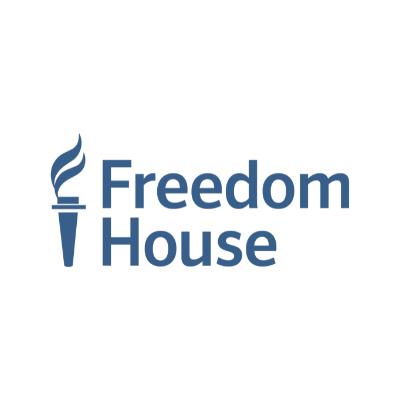 Freedom House Article Rating
Freedom House Article RatingInterview with Goli Ameri: On Women's Rights in Iran
- Bias Rating
- Reliability
N/AN/A
- Policy Leaning
88% Very Right
- Politician Portrayal
-60% Negative
Continue For Free
Create your free account to see the in-depth bias analytics and more.
By creating an account, you agree to our Terms and Privacy Policy, and subscribe to email updates.
Bias Score Analysis
The A.I. bias rating includes policy and politician portrayal leanings based on the author’s tone found in the article using machine learning. Bias scores are on a scale of -100% to 100% with higher negative scores being more liberal and higher positive scores being more conservative, and 0% being neutral.
Sentiments
N/A
- Liberal
- Conservative
| Sentence | Sentiment | Bias |
|---|---|---|
Unlock this feature by upgrading to the Pro plan. | ||
Reliability Score Analysis
Policy Leaning Analysis
Politician Portrayal Analysis
Bias Meter
Extremely
Liberal
Very
Liberal
Moderately
Liberal
Somewhat Liberal
Center
Somewhat Conservative
Moderately
Conservative
Very
Conservative
Extremely
Conservative
-100%
Liberal
100%
Conservative

Contributing sentiments towards policy:
60% : During the beginning phases of the 1979 revolution, I was spending the summer in Iran.60% : Women in Iran are educated and open-spirited.
59% : If we all take a minute and think about what's happening in Iran, we realize the incredible bravery of Iranian women.
58% : To me, this image felt a very telling portrait of the women in Iran: independent and brimming with life.
54% : When I served at the US State Department, the Institute for International Education gifted me a book, which showed that Iran in the 1970s had the largest number of foreign students in the United States.
51% : How often are we hearing this exact same refrain in videos coming out of Iran today?
47% : Women in Iran are fighters not just because they had to be, but because they expect more of themselves and those around them.
47% : Canada was the bravest; some in the European Union lagged, and the majority of nonaligned countries either abstained or voted against.
44% : People in Iran do not have these freedoms.
42% : The women in Iran would like to practice their religion independently and not have their lives dictated by others.
42% : Many other countries, because of their economic ties to Iran, will not vocalize or support just values.
38% : Many who have ever visited Iran have experienced their bullying, and many who live there experience it as a part of everyday life.
36% : When I served as a US Representative to the UN Commission on Human Rights and subsequently at the UN General Assembly, so many countries would not cast a censorious vote on the human rights record in Iran, because they had economic or other political ties to Iran.
35% : The unrest in Iran, just like any unfree society, is a simmering cauldron.
31% : As we closely follow the protests in Iran following the suspicious death of 22-year-old Mahsa Amini, who was in the custody of Tehran's infamous "morality police," we turned to Goli Ameri, Vice Chair of our Board of Trustees.
30% : Some in the United States are wondering why we are backpedaling, and the women in Iran are wondering why they are stuck in quicksand.
*Our bias meter rating uses data science including sentiment analysis, machine learning and our proprietary algorithm for determining biases in news articles. Bias scores are on a scale of -100% to 100% with higher negative scores being more liberal and higher positive scores being more conservative, and 0% being neutral. The rating is an independent analysis and is not affiliated nor sponsored by the news source or any other organization.


























